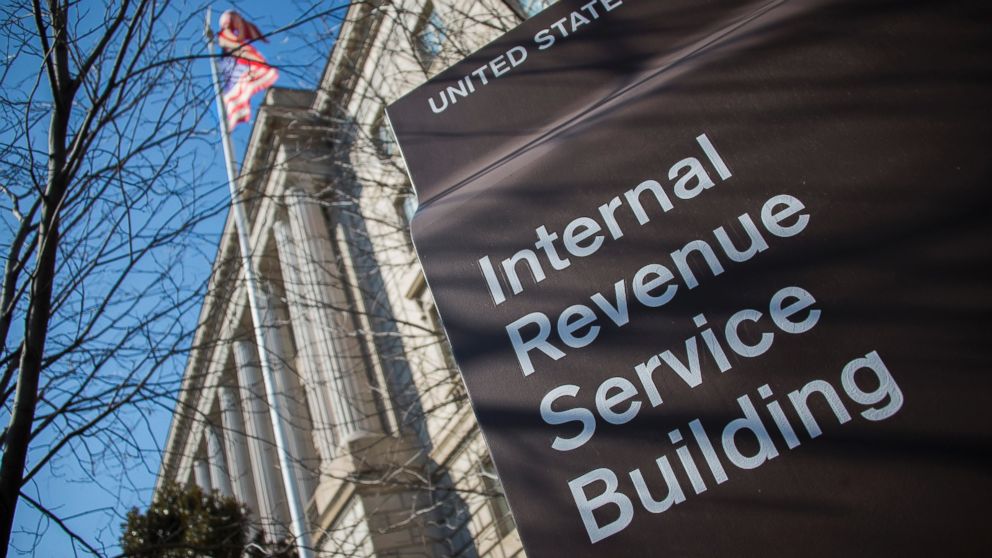10 Things That Drive American Consumers Crazy
Survey identifies fake IRS agents as fastest-growing consumer complaint.

— -- A new survey of American consumers shows that complaints about auto and home repairs are still at the top of the list when it comes to buyer headaches, but an insidious problem has been identified as the fastest-growing issue: fraudsters tricking people out of their hard-earned money.
Impostor scams swept the country in 2015, resulting in the greatest increase in complaints, according to a survey of state and local consumer protection officials released this week by the Consumer Federation of America (CFA) and the North American Consumer Protection Investigators (NACPI).
In one scam, fraudsters posing as IRS agents call individuals — sometimes using a spoofed caller ID number that appears to come from the IRS in Washington — to tell them they’ve been audited and if they don’t pay a fine immediately, they will face legal action, arrest or, in the case of immigrant families, deportation.
“It scares the heck out of people to get a call or email from the IRS saying there’s a problem with their taxes and demanding they send money immediately to clear it up,” said Susan Grant, the director of consumer protection and privacy at the CFA. “They don’t realize that the IRS is, in fact, not calling people and asking them to send money, and they’re just scared into it. A lot of different kinds of successful frauds operate on scare tactics.”
Stephanie Zimmermann is the ABC News Fixer. Got a consumer problem? She may be able to help. Click here to submit your problem online. Letters are edited for length and clarity.
In another impostor scam, crooks infiltrate email systems of companies or organizations and send messages to employees purporting to be from their boss, asking them to urgently wire money somewhere.
Phony tech support scams also proliferated last year.
As some consumers have wised up about not wiring money, Grant said, scammers switched tactics, asking instead for funds to be sent through iTunes cards or prepaid reloadable debit cards.
“Neither the third party retailer nor Apple would be responsible to refund the money if someone steals your card,” said Amber Capoun, the president of the NACPI. “Gift cards and prepaid cards are like cash. You don’t physically have to have the card itself to use it. All you need is the card number and the code.
Though fraud is a growing problem, the number of consumer complaints didn’t come close to those about deceptive sales practices and faulty repairs of cars and shoddy or unfinished home improvement work — two areas that traditionally top the list.
“Home and automobile purchases are some of the most expensive purchases you can make,” Grant said. “If you’ve got a problem with a new car or if you’re paying for a new home to be built, you’re more likely to report it because it’s a big financial investment for you.”
Here is the list of the top 10 consumer complaints, according to the CFA and NACPI, along with some related information from the ABC News Fixer:
1. Auto. Misrepresentations in advertising or sales of new and used cars, lemons, faulty repairs, leasing and towing disputes. [Like when an ABC News viewer told the ABC News Fixer how an oil change destroyed her engine.]
2. Home improvement and construction. Shoddy work, failure to start or complete the job. [Tip from the ABC News Fixer: Check the contractor out thoroughly before the job begins.]
3. Utilities. Service problems or billing disputes with phone, cable, satellite, Internet, electric and gas services. [Check out this viewer’s giant phone bill after taking a cruise.]
4. Credit and debt. Billing and fee disputes, mortgage modifications and mortgage-related fraud, credit repair, debt relief services, predatory lending, illegal or abusive debt collection tactics. [See how the ABC News Fixer helped a viewer who got collection calls for a debt she didn’t owe.]
5. Retail Sales. False advertising and other deceptive practices, defective merchandise, problems with rebates, coupons, gift cards and gift certificates, failure to deliver. [Example: this prom dress that was too late and ill-fitting — but fixed by the ABC News Fixer.]
6. Services. Misrepresentations, shoddy work, failure to have required licenses, failure to perform. [Case in point: a lawn “ghoster” caught on video.]
7. Landlords. Unhealthy or unsafe conditions, failure to make repairs or provide promised amenities, deposit and rent disputes, illegal eviction tactics. [Check out what happened when a mail carrier faced a broken door buzzer.]
8. Household goods. Misrepresentations, failure to deliver, faulty repairs in connection with furniture or appliances. [Like the “possessed” fridge that resisted repairs until the Fixer resolved it.]
9. Health products and services. Misleading claims, unlicensed practitioners. [See how this health insurance snag caused a viewer’s deductible to balloon.]
10. (tie) Internet sales. Misrepresentations or other deceptive practices, failure to deliver online purchases.
10. (tie) Fraud. Bogus sweepstakes and lotteries, work-at-home schemes, grant offers, fake check scams, impostor scams and other common frauds. [Here’s how to outsmart the IRS agent impersonators.]
The consumer agencies surveyed flagged forced arbitration clauses in contracts as the area most in need of change. These clauses, which appear in contracts for cellphones and even new homes, prevent consumers from taking legal actions to enforce their rights.
Other suggestions included offering free credit freezes to consumers on demand, instituting stricter laws against caller ID spoofing and robocalls, creating lemon laws for used cars and making stronger rules against abusive debt collection.
Thirty-three consumer agencies from 20 states participated in the survey, which asked about the most common complaints they received in 2015, the fastest-growing complaints, the worst complaints, new types of consumer problems and more. Read the entire report here.




